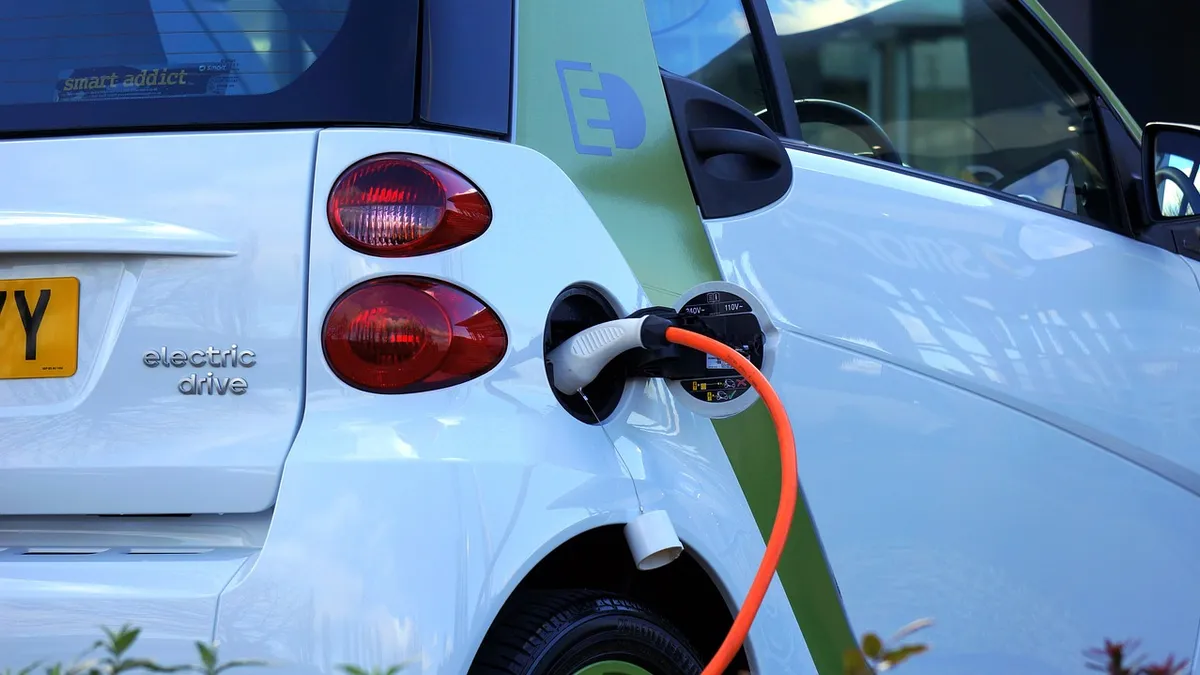Dive Brief:
- Under a new European Union (EU) requirement that took effect on July 1, all new four-wheeled electric vehicles (EVs) must be outfitted with a device that mimics the sound of an engine, reports the BBC.
- The acoustic vehicle alert system has to turn on when the car reverses or drives below 12 mph, when the car is most likely to be near pedestrians. Some disability advocacy groups have argued the noise should be required at all speeds.
- The U.S. will institute a similar requirement for new EVs starting in 2020.
Dive Insight:
Despite the benefits of EVs, there has been concern that the virtually silent cars could pose a potential threat to visually impaired people and distracted pedestrians and cyclists. That’s especially true in busy urban areas, where EVs are more common and must share the road with other users. Under the EU mandate — which will be extended to existing EVs starting in 2021 — the sound must turn on automatically, but can be disabled by the driver if needed.
Roads minister Michael Ellis told the BBC the government wanted "the benefits of green transport to be felt by everyone," and that the rules responded to the visually impaired community. Guide Dogs, a UK-based charity, said the change was welcome, but the group has advocated for noise at all speeds.
The U.S. National Highway Traffic Safety Administration (NHTSA) wrote in its own regulations that the odds of a hybrid or electric vehicle being in a pedestrian crash are 1.19 times higher than a gas-powered one.
With the U.S. also adopting the requirement, automakers around the world are likely to put noise-emitters in all of their vehicles. That could offset one of the technology’s benefits in reducing traffic noise, which researchers have increasingly tied to stress and mental health.
A recent WPI Economics report found that reducing noise pollution was one of the key improvements transportation agencies could make to improve passengers’ experiences, with the added benefit of reducing stressors in the surrounding area. Although an all-electric fleet would mean significantly quieter cities, the artificial noise is a necessary trade-off to keep pedestrians and cyclists safe.











